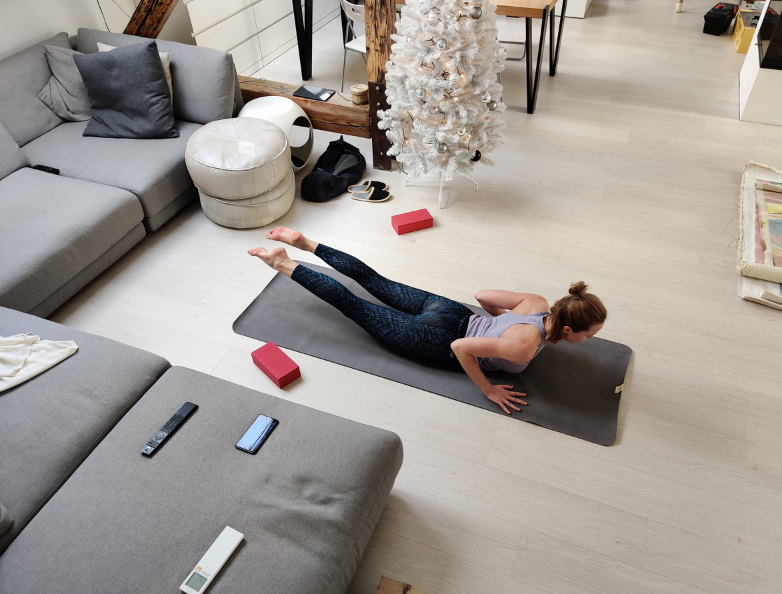Autumn is upon us.
And with it comes hot apple cider, spooky Halloween costumes, turkey dinner, and cool weather.
But autumn can also come with a lot of stress.
Whether we’re dealing with new back-to-school routines, adjusting to being indoors more, or planning for Thanksgiving, we may be feeling extra pressure.
As such, it’s important that we practice good self-care throughout the season.
Read on for 6 self-care tips to make the autumn awesome!
1. Have Counselor on Stand-By
While the crisp air and beautiful scenery are loved by many, autumn can also be a tough time for some of us. As days become shorter and winter looms around the corner, Seasonal Affective Disorder (SAD) can set in.
For some of us, this form of depression can severely affect our daily lives.
Speaking to a counselor can help us through autumn and beyond. They can provide support and tools to make the seasonal changes bearable.
Looking for a qualified counselor? Learn more here.
2. Manage Medication
Relatedly, if we require antidepressant medication for SAD, or would like to try it, we should consult our doctor.
It can take a few weeks to feel the full benefit of antidepressants. This means they’ll need to be taken in anticipation of seasonal changes, before symptoms of SAD begin.
If we’re new to antidepressants, we may have to try a few before we find the right fit.
Doctors may suggest we take the medication until springtime.
It’s important to have an ongoing relationship with our doctors, so they can monitor our condition and adjust if needed.
3. Spend Time Outside
It’s no surprise that many of us spend more time indoors during autumn. This may happen because of cooler weather, fewer outdoor activities, and the return of school night routines for people with children.
But trying to hangout outdoors can benefit us in many ways, like:
- Boosts mood and mental clarity
- Provides opportunities for socialization
- Increases sunlight exposure which leads to reduced depression and better, more regular sleep
- Provides better air quality, therefore fewer respiratory issues. Indoor air pollution can be two to five times worse than in outdoor green spaces.
4. Practice Setting Boundaries
Whether we celebrate Eid al-Adha, the Autumn Equinox, Thanksgiving, or Yom Kippur, autumn marks the beginning of the holiday season for many of us.
And, the holiday season continues throughout Christmas, Kwanzaa, Hanukkah, etc.
Celebrations often mean gathering with loved ones and all the stress that comes with that.
Family dynamics, over-committing, and planning can cause tension. To protect our well-being, we should learn to set clear, healthy boundaries.
This way, people know what our limits are, what behaviors we’ll accept, and how available we’ll be. Learning to set boundaries will also help us appreciate and respect the boundaries of others.
5. Make Healthy Eating a Priority
Aside from eating tasty treats during the holidays, cool weather may cause us to overindulge in unhealthier foods.
Researchers aren’t sure why this is. Some suggest it’s a biological instinct that drives us to store more calories leading up to winter. Historically, food was less available during colder months; extra fat would help us survive until spring.
Others believe our increased eating is opportunity-based. We’re inside more, and there are often leftovers/ treats that are easily accessible.
And some say we eat more to account for the lack of sunlight. Both eating and sunlight release serotonin, aka “the happy chemical”, which boosts our mood.
No matter the reason, we should be mindful of how we eat. That’s not to say we shouldn’t enjoy unhealthy snacks sometimes. However, we should try to eat a balanced diet year-round.
6. Adjust Exercise Routine
For those of us who exercise outside, early autumn may actually be a great time. Depending on the location, the weather is milder compared to summer, and the views are beautiful.
But as late autumn approaches, it may become less pleasant to exercise outdoors. We shouldn’t let this stop our workout routine altogether, though.
We should make alternative plans, like going to a gym or working out at home. If we want to exercise outside during the autumn and beyond, we should:
- Change our workout time (for safety, visibility, and temperature)
- Learn how to warm up our bodies for cooler weather
- Get the proper gear, like warm layers, gloves, etc.
Final Thoughts
Autumn is well-loved by many. From Jack-o-lanterns and pumpkin-spiced lattes to multicolored leaves and chilly nights, it’s a great time of year.
And even with the back-to-school rush and holiday planning, we deserve to make self-care a priority and feel our best.
Sources:
https://www.healthline.com/health/health-benefits-of-being-outdoors#better-breathing
https://www.npr.org/2011/12/19/143938954/winter-munchies-do-we-eat-more-in-colder-months
https://www.everydayhealth.com/diet-nutrition/why-do-we-eat-more-in-winter.aspx

